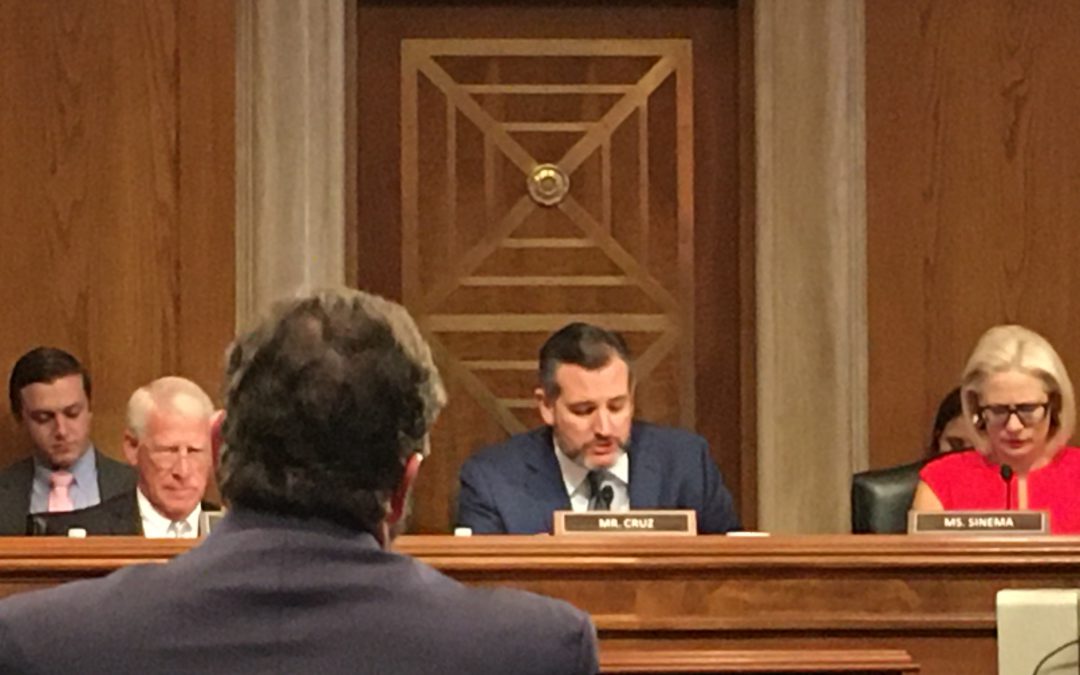WASHINGTON – Engaging STEM students in projects with NASA not only helps to build the space workforce for the future, but it also gives opportunities to underrepresented minority communities to develop their skills, Sen. Ted Cruz said Tuesday.
The Texas Republican emphasized the importance of expanding the STEM education pool “with diverse group partners” for the future of space workforce during the hearing.
“Students are not only ones who are benefiting” from the programs with the National Aeronautics and Space Administration, Cruz said during a hearing of the Senate Subcommittee on Commerce, Science and Transportation.
Cruz, chairman of the committee’s space subcommittee, said the NASA programs provide hands-on training for students, develop the future workforce and foster innovations, which especially underrepresented minorities, women and rural communities.
Jeffrey Manber, chief executive officer at Nanoracks, said: “Space is more than satellites and rockets.”
Shella Condino, a physics teacher at Oakton High School, said about 60% of the students at her school identified themselves as English language learners, and 95% of them were Hispanic. She created a free summer enrichment program in rocketry and robotics for students’ activities.
Teachers and staff worked to create a program, with help from some communities and companies that gained national recognition because the students consistently placed high in national STEM competitions. They eventually were invited to the White House and presented their rocket to President Barack Obama.
The student team was able to participate the NASA’s power rocketry program where the students design, build and launch rockets with engineer fellows.
This program advanced students’ critical and analytical thinking, and it also improved their communication skills and developed time management, Condino said.
“It sounds impossible to believe, but this is the record of what my students have done,” Condino said.
There are so many “countless women working behind the scenes,” Cruz said. “We need to learn to ensure that we are cultivating and elevating talents and leaderships not based on race and gender but based on merit, skill, hardworking and passion.”

